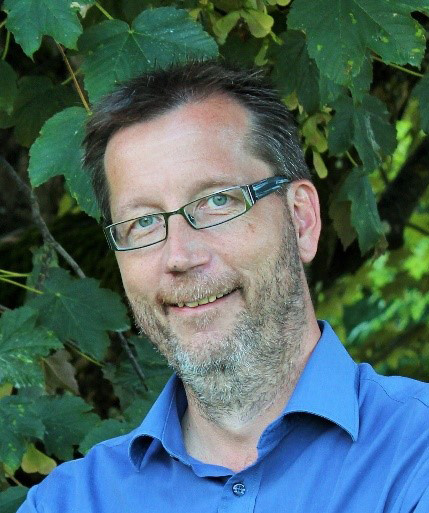Adapting Innovation in Grassland Management to Farmers' Needs to Face Social and Climatic Changes
Information
Invitation
The FAO-CIHEAM subnetwork on Mountain Pastures aims to share scientific and technical knowledge on mountain pastures and livestock farming, for which it organizes biennial meetings in singular European mountain areas.
The 20th Meeting of the subnetwork will be held at Ballstad (68.4 0N, 13.3 0E). It is a small fishing village in the Lofoten Islands, Nordland county, Norway. The village is located about 11 km east of Leknes airport, 27 km from Stamsund where Hurtigruten arrives and about 170 km from Bodø international airport, of which 94 km by boat.
Background and objective
The challenges and opportunities facing mountainous regions worldwide are plentiful, and involve aspects of sustainable food production, food safety, cultural and biological diversity, spatial management, encroachment and fragmentation, wilderness policies, indigenous culture and climate change, to mention some. The need to understand how these regions are subject to rapid and cascading effects from a number of social, economic and environmental drivers of change, is therefore critical.
The 20th Meeting of FAO-CIHEAM subnetwork on Mountain Pastures in Ballstad will discuss innovation in mountain grasslands as an important way forward towards sustainable grassland and rangeland science and management. A main focus will be on the opportunities and challenges connected to sustainable pastoralism and livestock farming, which today are influenced by unprecedented rates of climate and environmental change, institutional restructuring, use-protection conflicts, and human activities. To meet these challenges and transform threats into opportunities, the meeting will address the following issues:
- technical innovation and transfer of tools/new technologies to farmers;
- innovative grassland management and monitoring;
- product added value and footprints of productions processes;
- mountain-pastoral cultural landscapes as an opportunity to develop agriculture-tourism interrelations;
- farmers’ social role;
- grass-fed foods to fulfill societal demands for quality, environmental-friendly production and consumers’ security;
- climate changes and pastoral sustainability.
Optimizing these aspects requires a transdisciplinary approach, which combines research and development on ecology, animal, social and environmental issues. Exchanging information on these aspects is the overall objective of this meeting.
Deadlines
10 May 2018 – Extended abstract (deadline has passed)
10 June 2018 – Acceptance of the extended abstract
15 June 2018 – Early bird registration (payment to benefit from the reduced rate)
15 July 2018 – Final deadline for registration at full rate
https://www.facebook.com/events/1026818094149367/
Norwegian Institute of Bioeconomy Research - NIBIO, Nordland Research Institute and Norwegian Agricultural Advice Lofoten, will organize the meeting.
Sponsors:

Registration fees / scholarships / accommodation
Before 1 June 2018 registration fees will be 3500,- NOK for senior experts and 2500,- NOK for young rewarded researchers (below 35 years), after which fees will be 4500,- NOK.
Fees include attendance to the conference, coffee breaks, lunches, social evening, field trip and all the transfers. Accommodation and travel expenses are additional. The mode of payment will be indicated in the Second Announcement.
The organisers will award a limited number of scholarships to partly cover registration fees, accommodation and travel expenses for young participants with contributions accepted by the Scientific Committee. Candidatures have to be submitted through the online registration system including a short 1-page Curriculum Vitae.
Participants will be accommodated at their own expense in a partner typical Norwegian hut. However, they will have either the possibility to book directly the accommodation using registration procedure or book other hotels in the area. Of course, we encourage booking the suggested accommodations to create a convivial environment and improve human relations.
The meeting will be held at Kraemmervika Havn http://www.kremmervikahavn.no
It will last three and a half days, providing a forum for scientific and technical exchanges and a one-day field trip.
The deadline for abstract submission has now passed. Please consider to register again using the online registration form, if you have not yet ticked off for accommodation, Hurtigruten, and bus transport.
How to return from Lofoten:
It is possible to return from Lofoten either by airplane or by boat or ferry. Timetables and information is available at the following links.
Flight from Leknes or Svolvær (https://www.wideroe.no/en/Fly-to-LoVe)
Ferry or boats (https://lofoten.info/lofoten/?Article=18)
Information
This activity has ended, and it is no longer possible to register.
The scientific sessions will concist of keynotes presented by guest speakers and free contributions as oral presentations, speed presentation (2' pitch-elevator) or posters.
The working language of the meeting will be English.
Please send abstract to: mountpast2018@nibio.no
-
Sunday, 9th September BOAT TRIP
-
From 12.00
Registration Hurtigrute kay Bodø
-
15.00
Departure Hurtigruten boat trip Bodø - Stamsund (Lofoten)
-
Registration
-
17.30
Welcome dinner
-
19.00
Arrivel Stamsund bus to Ballstad
-
Accommondation at Ballstad
-
-
Monday, 10th September MEETING DAY
-
08.30 - 09.00
Registration Kraemmervika Havn
-
09.00 - 10.10
Opening session
Chairperson: Grete Jørgensen
-
09.00
Opening adress
Alain Peeters, Giampiero Lombardi, Vibeke Lind
-
09.15
Welcome
Remi Solberg, Mayor of Vestvågøy municipality
-
09.25
Bioeconomy in Norway - role of the land-based sectors including mountain pasture
Per Stålnacke, Director Research NIBIO
-
09.45
Lofotlam – from local specialty to brand
Gustav Karlsen, NLR Nord Norge and Finn Arne Haugen, NIBIO
-
10.15 -13.00
Innovation in grassland management and moniotoring
Chairperson: Giampiero Lombardi
-
10.15 - 10.55
Internet of things and agriculture. Proximal sensoring and Grass8 system for a sustainable management of pastures
Riccardo Beltramo, University of Torino
-
10.55
Governing emergent land, an expanding recreational resource in Kvarken Archipolago (Finland) and future pasture possibilities
Kristina Svels
-
11.10
Quantifying browsing damage on shrubs by grazing animals
Markus Staudinger, Tobias Zehnder, Manuel K. Schneider
-
11.25
Coffee break
-
11.45
Effect of walking or truck transhumance on cows' preformance
Madeline Koczura, Matthieu Bouchon, Germano Turille, Joël Bérand, Sarah Zurmühle, Michael Kreuzer, Bruno Martin
-
12.00
Virtual fences for goats
Silje Gunhild Eftang, Knut Egil Bøe
-
12.15
New methods for retrieval of free range sheep
Svein-Olaf Hvasshovd
-
12.30
Can sensor technology and real-time communication detect tick-born fever in sheep on range pasture?
Lisa Grøva
-
12.45
Evaluation of sycamore maple, common ash, goat willow, and rowan foliage for goat nutrition
Simone Ravetto Enri, Massimiliano Probo, Manuela Renna, Eleonora Caro, Carola Lussiana, Luca M. Battaglini, Giampiero Lombardi, Michele Lonati
Planning grazing management enhances plant alpha-diversity and pastoral value of alpine grasslands
Michele Lonati, Elisa Perotti, Massimiliano Probo, Marco Pittarello, Giampiero Lombardi
A new methodology to estimate stocking density of grazing sheep based on distance from night pens
Simone Ravetto Enri, Alssandra Gorlier, Ginervra Nota, Michele Lonati
-
13.00
Lunch and poster session
-
14.30 - 17.30
Strategies to reduce the causes and mitigate the effects of climate changes on agropastoral systems
Chairperson: Grete Hovelsrud
-
14.30
Three lessons from Drought Planning to help planning for climate change
Mitchel McClaran, Arizona University
-
15.10
Climate footprint and ecosystems services in Alpine dairy cattle chains
Enrico Sturaro, Marco Berton, Luigo Gallo, Stefano Macolino, Christina Pornaro, Maurizio Ramanzin
-
15.25
Does grazing duration in dairy farming have environmental benefits?
Daniel U. Baumgartner, Thomas Guggenberger, Silvia M.R.R. Marton
-
15.40
Socio-ecological transformations: how do pastoralists adapt to climate change in Norway and Mongolia?
Andrei Marin
-
15.55
Coffee break
-
16.20
Climate change implications of sheep farming system extensification: a LCA case study
Enrico Vagnoli, Antonella Franca, P. Arca, Claudio Porqueddu, Pierpaolo Duce
-
16.35
How do Norwegian farmers and agricultural organizations understand their role in "the green transition"?
Grete K. Hovelsrud, Marianne Karlsson and Halvor Dannevig
-
16.50
Our common cause: Our Upland Commons - talking a multipartner collaborative approach to resolving challanges on upland commons in England
Christopher John Short, Julia Aglionby
-
17.05
Reason for valuing smallholder farmers' ecosystem services in maintaining biodiversity and food productivity in Western Norway
Siri Veland
Tissue stoichiometry as a forage quality index in the context of climate change: drought-related productivity constraints and nutrient quality
Melissa Christina Morcote Martinez, Johannes Ingrisch, Roland Hasibeder, Helene Solderer, Kevin Van Sundert, Sara Vicca, Michael Bahn
The contribution of livestock species to reduce vulnerability in pastoral areas of Egypt
Helmy R. Metawi
-
19.30
Dinner at Kraemmervika Havn
-
-
Tuesday, 11th September DAY TRIP
-
08.30 - 21.30
DAYTRIP
-
Stockfish in Lofoten
The blacksmith in Sund
Farm cheese factory with goats including lunch
Sheep farmer delivering to Lofotlam
Viking museum at Borg including dinner with the chiefcain
-
Wednesday, 12th September MEETING DAY
-
09.00 - 12.35
Linking agropastoral sustainability with agricultural policies and human activities
Chairperson: Per Stålnacke
-
09.00
Livestock - carnivore conflicts; the impact of production
Inger Hansen, Geir-Harald Strand, Auvikki Ilmarar Bjerka de Boo, Camilla Sandstöm
-
09.40
Utilizing natural pastures in Northern Norway with Vestlandsk fjord cattle
Grete H.M. Jørgensen, Nina H. Sæther, Kleopatra Delaveris
-
09.55
The surfaces for the promotion of biodiversity as an effective political tool for plant diversity preservation in the southern Swiss Alps permanent grasslands
Emiliano Nucera, Michele Lonati, Simone Ravetto Enri, Pier Francesco Alberto, Massimiliano Probo
-
10.10
Does mountain origin give specifity to milk?
Mauro Coppa, Chantal Chassaing, Cecilie Sibra, Odd Magne Harstad, Joze Verbic, Jaroslav Golecky, Anne Ferlay, Bruno Martin
-
10.25
The impact of cattle breed on pasture vegetation
Caren Pauler, Johannes Isselstein, Thomas Braunbeck, Manuel K. Schneider
-
10.40
Coffee break
-
11.05
An agroecological lecture of the Andean breeding systems
Gilles Brunschwig
-
11.20
The challange of the large carnivores: "Change Management" from free grazing to the flock management
Daniel Mettler
-
11.35
Impact of organic fertilisation on agro-ecological features of Trisetum flavescens (L.) P.Beauv.grassland
Veronica Sarateanu, Carmen Claudia Durau, Otilia Cotuna, Dorin Rechitean
-
11.50
Grass-fed milk consumers' perception: an explorative survey in Italy
Giampiedro Lombardi, Giovanni Peira, Damiano Cortese, Luigi Bollani, Elena Salussoglia
-
12.05
Eco-management for the agriculture and tourism chains in marginal mountain areas
Stefano Duglio, Giampiero Lombardi
-
12.20
Journal of Mountain Science: an important platform for publishing mountain research achievements
Qiu Dunlian, Executive Editor-in-Chief Journal of Mountain Science
-
12.35
Administrative information
-
12.45
Closing ceremony
-
13.00
Lunch
-
14.00
Bus departure to Leknes airport
Organizing Committee
Dr. Vibeke Lind and Dr. Grete M. Jørgensen (NIBIO), Dr. Ingrid Bay-Larsen and Dr. Kristina Svels (Nordland Research Institute), Mr. Gustav Karlsen (NLR)
Scientific Committee
Alain Peeters, RHEA, Belgium (Coordinator FAO-CIHEAM Network on Pasture and Forage Crops)
Giampiero Lombardi, Università degli Studi di Torino, Italy (Coordinator FAO-CIHEAM Sub-Network on Mountain Pastures)
Isabel Casasús, CITA-Aragón, Spain
Margalida Joy, CITA-Aragón, Spain
Daniel Villalba, Universitat de Lleida, Spain
Eric Mosimann, Parc Jura Vaudois, Switzerland
Giovanni Peratoner, Laimburg Research Centre, Italy
Manuel K. Schneider, Agroscope Zurich, Switzerland
Michele Lonati, Università degli Studi di Torino, Italy
Bruno Martin, INRA Clermont-Ferrand, France
Erich M. Pötsch, Agricultural Research and Education Centre Raumberg-Gumpenstein, Austria
Vibeke Lind, NIBIO Norwegian Institute of Bioeconomy Research, Norway
Grete Meisfjord Jørgensen, NIBIO Norwegian Instiute of Bioeconomy Research, Norway
Tzach Glasser, Ramat Hanadiv Nature Park, Israel
Scientific topics and Key-note speakers
Submission of scientific contributions
In line with other international congresses and to encourage the presentation of original results, authors will submit a one page extended abstract using online procedure. The acceptance of an extended abstract implies that it will actually be presented at the meeting by one of the co-authors. No full-papers will be requested and meeting proceedings will not be published. However, we have find an agreement with the Journal of Mountain Science (http://www.springer.com/earth+sciences+and+geography/journal/11629 )for the publication of some selected papers, after the meeting, in an issue edited by meeting organizers (information about the procedure will be supplied in next announcements or on the website).
Submission procedure
While filling the online preliminary registration form participants will be requested to propose a title of their contribution and a take-home message for conveners, i.e. a very short description (15-20 words) of what they would like to communicate to the other participants.
The extended abstracts will be submitted at a second stage uploading a MSWord file prepared using the template that will be available through the online system. Authors will have to indicate their preference for one of the topics of the meeting and for one of the three presentation forms: oral presentation, 2-3’ speed presentation, poster.
The ‘take-home message’ and extended abstract either have to be written in English.
All the extended abstracts will be reviewed by the International Scientific Committee and assigned to one of the sessions. ISC will also define the final meeting program and attribute each abstract an oral presentation, speed presentation or a poster.
Session 1: Innovation in grassland management and monitoring
The session will deal with new grassland management strategies, including new tools for herd management (e.g. virtual fences), for grassland monitoring (e.g. drones and proximal sensoring) and the new research findings to support such strategies and preserve or improve biodiversity and the other ecosystem services.
Session 2: Linking agropastoral sustainability with agricultural policies and human activities
This session will focus on the large number of goods and services provided by mountain agropastoral systems and their link with the society, related human activities (e.g. tourism), and the policy tools to support them. Possible conflicts (e.g. large carnivores and sheep meat production) and constraints affecting ecosystem service delivery will also be considered.
Session 3: Strategies to reduce the causes and mitigate the effects of climate changes on agropastoral systems
This session will deal with the effects of climate changes on agropastoral systems and vice versa. Strategies for agriculture and livestock system adaptation and to reduce the impact of practices and production processes on CO2, CH4 and other GHG emissions will be discussed.
Presentation Key-note speakers
Dr. Inger Hansen
I am working at the Norwegian Institute of Bioeconomy Research, at a research station located to Tjøtta in Nordland County. I took my PhD on applied animal ethology years ago, but most of the time I have been engaged in livestock-carnivore conflicts. In Norway depredation of sheep and semi-domestic reindeer caused by protected large carnivores and golden eagle is a big issue. My focus has mainly been on mitigation measures and mortality studies of lambs on summer range.
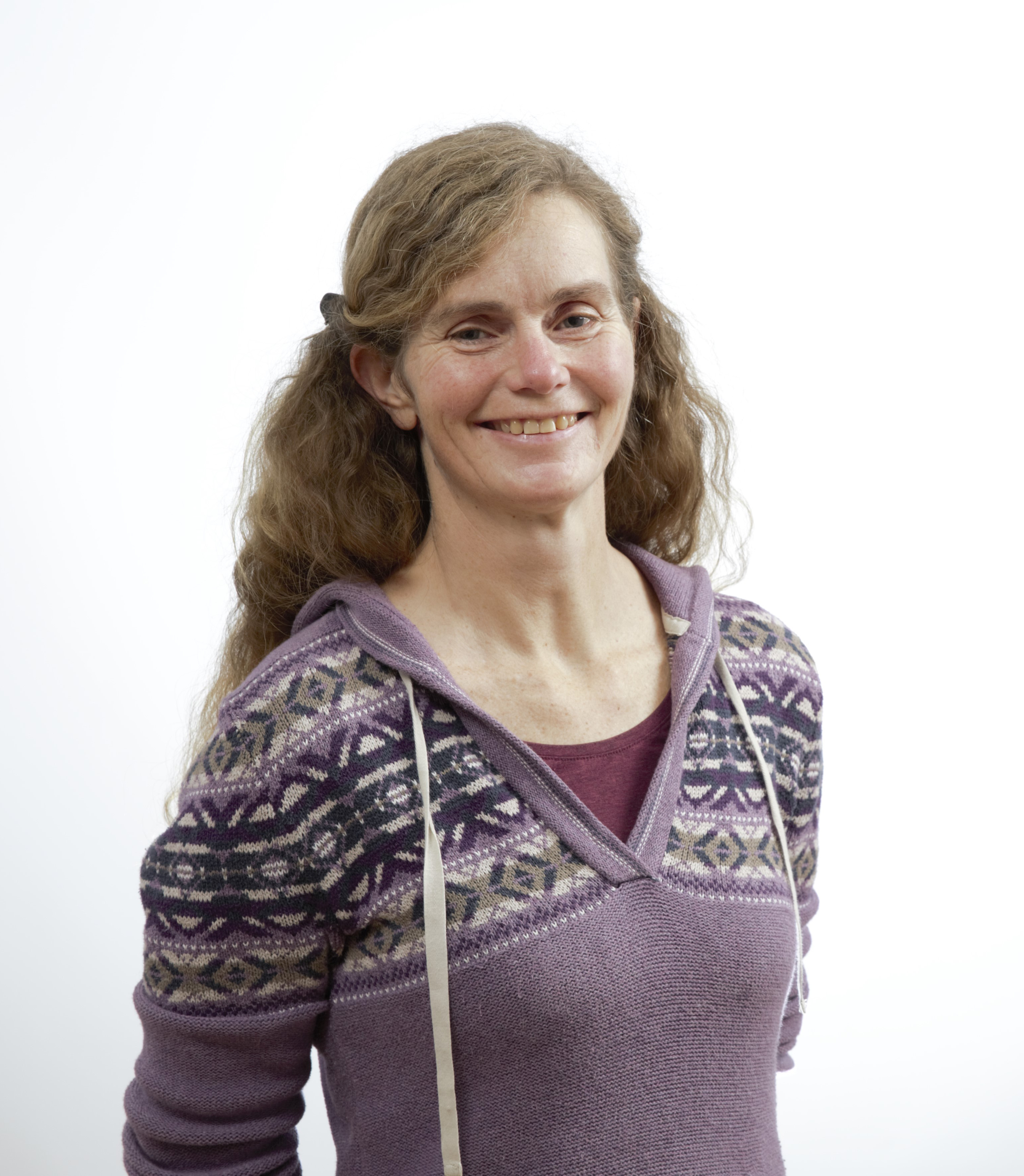
Mr. Gustav Karlsen
MSc agriculture from NLH (today Norwegian University of Life Sciences) in 1981 with master in exploitation of fishlocks for animal rearing. Consultant Tine from 1981 to 1986 Consultant NLR (Norwegian Agricultural Advice) 1986- 2018 with project development in nature-based industry.
General manager of Lofotlam Sa from 2005.
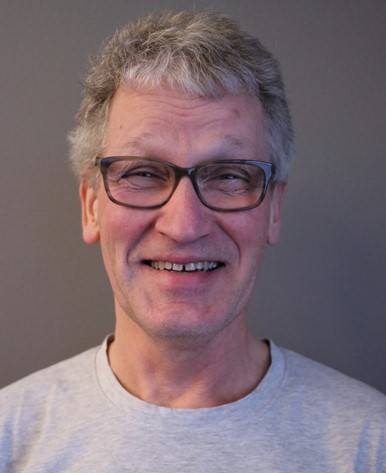
Dr. Mitch MacClaran
Mitchel McClaran (PhD 1986, UC Berkeley) is Professor of Range Management at the University of Arizona where he teaches and researches rangeland ecology and policy. He is a Fellow in Society for Range Management and the University of Arizona Bart Cardon Academy for Teaching Excellence. He is the Associate Director for Strategy and Rangelands for the University of Arizona Agricultural Experiment Station and Director for Research at the 21,500 ha UA Santa Rita Experimental Range. He is Chair of Program in Ecology, Management and Restoration of Rangelands in the School of Natural Resources and the Environment, University of Arizona. He has been a member of the University of Arizona faculty since 1986. He has authored or co-authored more than 90 peer-reviewed publications. More details are available at http://www.snr.arizona.edu/people/mcclaran.
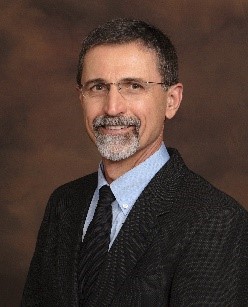
Dr. Riccardo Beltramo
Riccardo Beltramo is Full Professor at the University of Torino, Department of Management, Area of Commodity Sciences since 2005, professorship of "Environmental Management Systems and Certification". Since 1985, he has been involved in the field of Industrial Ecology and researches on integrated management systems, applied to manufacturing and service sectors as well as industrial areas. He currently teaches, at the School of Management and Economics, Operations Management, Industrial Ecology and Eco-management of tourism. He is Chair of the Degree Program in Business Administration in complex learning, and Director of the Interdepartmental Centre NatRisk, a network for theoretical, experimental and applied research and for the dissemination in the field of prediction, prevention and management of the risk of natural disasters in mountain and hilly environment. Maker soul, in the field of Internet of Things (IoT), he has invented the Scatol8® System, a remote sensing network to monitor, display and elaborate environmental and management variables, giving rise to academic spin-off "The Scatol8 for Sustainability srl”, http://scatol8.net.
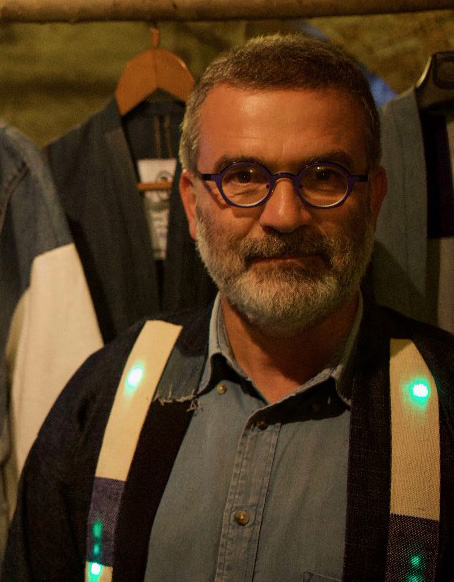
Dr. Per Stålnacke
I’m since August 2017, Director Research at NIBIO. My research background is primarily devoted to interdisciplinary research on integrated water resources management and water pollution coupled to the land-based production. I started my professional carrier at Jordforsk in 1997, which later merged with Planteforsk to Bioforsk (2006) and later to NIBIO (2015). I have an interest to bridge the gaps between research and practical management devoted to the interplay between environment, climate, agronomy, forestry, economy and social impacts.
